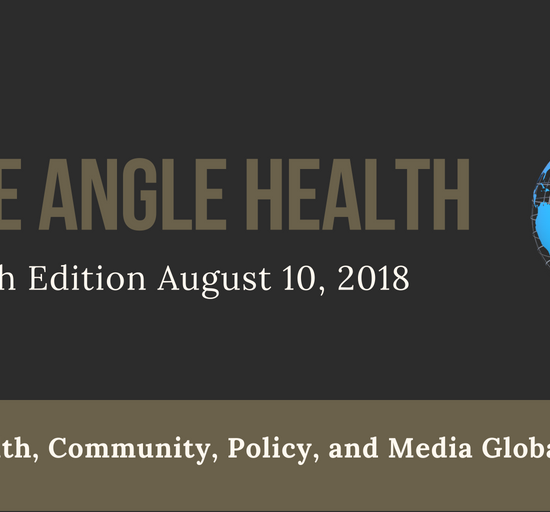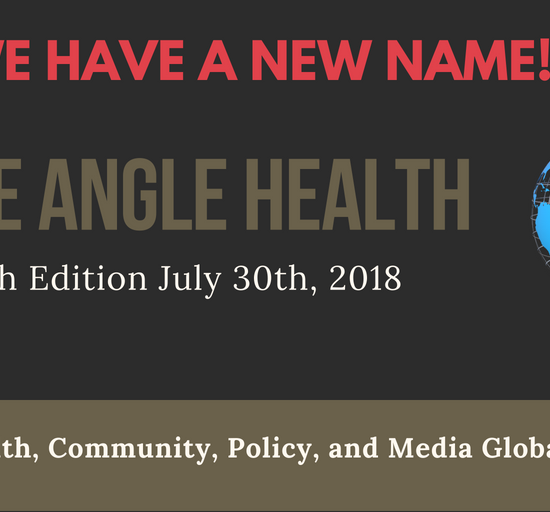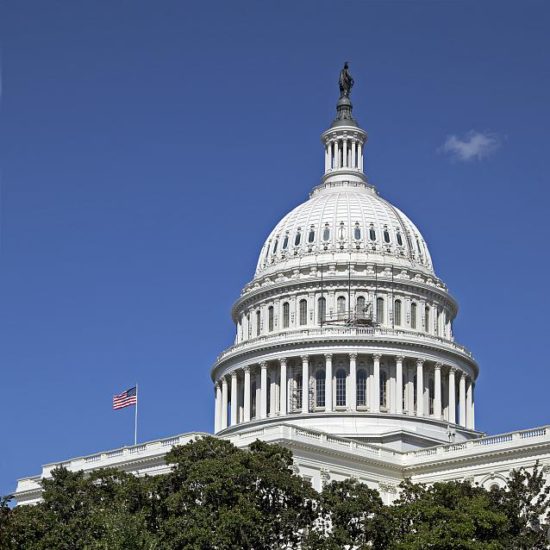
This serves as the fourth edition of HealthCetera’s global health policy and media action news update curated by the Center’s Katherine (Kayte) Green. This bi-weekly round-up intends to keep our community apprised of up-to-date news, policies, and ideas important to policy and social issues facing national and international health. This selection gathers information from a wide range of sources including, but not limited to: health associations and organizations, news sources, government agencies, academic publications, policy centers, and other national and international experts.
NATIONAL NEWS
The United States and China Trade War
Announced early Friday morning on July 6th, the Trump administration entered into the biggest trade war with China in recorded history. As sanctioned by Trump, The United States has placed 25% tariffs on more than 800 Chinese products, estimated worth $34 billion, on mainly industrial machinery such as auto parts and medical devices. China was quick to react and has placed tariffs on American goods immediately after the president’s announcement. Trump and his advisors claim that these tariffs on China the necessary pressure so that China will abandon unfair practices, defined by the administration as stealing intellectual property and strong-arming US companies to relinquish valuable technology.
Responses:
American Action News: HOW A TRADE WAR WITH CHINA WILL IMPACT U.S. HEALTH CARE COSTS
CNN Money: China: The US has started ‘the biggest trade war’ in history
Bloomberg: The U.S.-China Trade Relationship: A Dispute in Five Charts
Kaiser Health News: What A U.S.-China Trade War Could Mean For The Opioid Epidemic
CNN: How are a trade war could turn into a recession
Politico: Wall Street titans fail to explain Trump to China
Zacks: Will a Trade War With China Wreak Havoc in US Healthcare?
Affirmative Action: Higher Education in the United States
Last week, the Trump administration announced that it is rescinding policies that called on universities to consider race as a factor in diversifying their campuses. The guidance documents that were rescinded on Tuesday, July 3, do not have the force of law. Instead, they represented the official view of the federal government.
Educational institutions and diversity advocacy groups are reacting with alarm.
In one response, the Association of American Medical Colleges released a statement on July 4 that said In part: “We are deeply concerned that this signals opposition to the consideration of race as one of many individualized factors in higher education admissions, despite the fact that the Supreme Court has upheld this practice for 40 years, and as recently as 2016.”
In a statement, Harvard spokeswoman Melodie Jackson said the school “will continue to vigorously defend its right, and that of all colleges and universities, to consider race as one factor among many in college admissions, which has been upheld by the Supreme Court for more than 40 years.”
The NAACP Legal Defense and Educational Fund, Inc. Statement
Politico: Affirmative action guidelines dropped by Trump administration
Diverse: Trump Administration Takes Affirmative Action to Ignore Race and Law
ThinkProgress: Trump administration rescinds Education and Justice guidance on affirmative action
NYT: Trump administration’s rescission of guidance on consideration of race in university admissions
Tobacco use, regulations, and E-Cigarettes
The Milbank Quarterly: How Do You Solve a Problem Like Juul?
Devex: Opinion: How tobacco control can boost sustainable development
“Vaping is not a reliable path to giving up smoking, according to new research from Georgia State University— adding to a growing body of conflicting research into e-cigarettes’ potential as quit-smoking tools. The researchers found no evidence that electronic nicotine delivery systems helped adult smokers quit at rates higher than smokers not using the products. One reason for this may be that smokers may not get enough nicotine from e-cigarettes to give up traditional cigarettes. The findings point to a need for additional research, the authors emphasized, on the impact, design, marketing and regulation of e-cigarettes.”
GLOBAL NEWS
Breastfeeding
The American Academy of Pediatrics recommends breastfeeding as the sole source of nutrition for babies for the first 6 months and can be continued for as long as both child and mother want. When the United States declared opposition to the World Health Assembly’s Breast-Feeding Resolution, it shocked health officials worldwide.
The New York Times: Trump Stance on Breast-Feeding and Formula Criticized by Medical Experts
“A recent study by the National Bureau of Economic Research estimated that 66,000 infants died in low- and middle-income countries in 1981 alone because of the availability of formula.” Read More.
NPR Global Health: U.S. Tries To Derail WHO Resolution Endorsing Breastfeeding
NPR: Why The Breastfeeding Vs. Formula Debate Is Especially Critical In Poor Countries
The Lancet: Breastfeeding: achieving the new normal
Reports:
2011 The Surgeon General’s Call to Action to Support Breastfeeding.
American Academy of Pediatrics: Breastfeeding and the Use of Human Milk
Other News:
Devex: Opinion – How nurses can lead the fight against NCDs
“As the U.K. National Health Service celebrates its 70th anniversary, Annette Kennedy, president of the International Council of Nurses and member of the WHO Independent High-level Commission on NCDs, explains why nurses are key in the fight against NCDs.”
International Policy Digest: Trump and the Big, Bad Bugs
“Bad bugs are coming, and they are stronger and nastier than they have ever been. A few—like malaria and yellow fever—are ancient nemeses, but they’re increasingly immune to standard drugs and widening their reach behind a warming climate. Others—like Ebola, SARS, MERS and Zika—are new, exotic and fearsome.”
Global Health News Resources:
WEEKLY OP-ED
(Unsponsored and unsolicited)
Illustrations: Matt Huynh
Survival of the Richest
The wealthy are plotting to leave us behind
FUTURE HUMAN: Medium
“For all their wealth and power, they don’t believe they can affect the future.”
That’s when it hit me: At least as far as these gentlemen were concerned, this was a talk about the future of technology. Taking their cue from Elon Musk colonizing Mars, Peter Thiel reversing the aging process, or Sam Altman and Ray Kurzweil uploading their minds into supercomputers, they were preparing for a digital future that had a whole lot less to do with making the world a better place than it did with transcending the human condition altogether and insulating themselves from a very real and present danger of climate change, rising sea levels, mass migrations, global pandemics, nativist panic, and resource depletion. For them, the future of technology is really about just one thing: escape. (Read More)

Katherine Green works for the George Washington School of Nursing’s Center for Health Policy and Media Engagement. She holds a Master’s Degree in International Relations and Service Development. The focus of her research is gender equity and empowerment. She is passionate about working on unresolved social issues that deal with health, gender rights, LGBTQ, risk reduction, the arts, and justice. She has a background in social sciences and fine arts. Prior to joining GW, Katherine has worked in global and national health advocacy, development, and policy.
To subscribe and submit content to HealthCetera News Action Update email: nursingpolicy@gwu.edu













